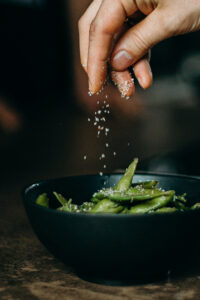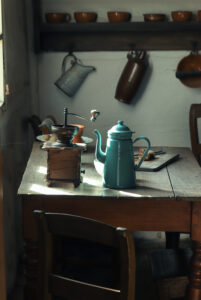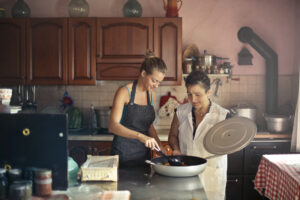If you’re in the market for new cookware and you have a glass top stove, you may be wondering what the best options are for this type of cooktop. With so many choices available, it can be overwhelming to know where to start. Luckily, we’ve got you covered. In this article, we’ll explore the best cookware options for glass top stoves, taking into consideration safety, quality, and performance. Whether you’re a seasoned chef or just starting out in the kitchen, finding the right cookware is essential for achieving delicious results on your glass top stove. Let’s dive in and discover the perfect cookware for your cooking needs.

This image is property of images.pexels.com.
Get The Best Cookware For Glass Top Stove
Factors to Consider
When choosing cookware for your glass top stove, there are several important factors to consider. These factors will help ensure that you select the best cookware that will be safe to use on your glass top stove and provide optimal cooking performance.
Heat Conductivity
One of the key factors to consider when choosing cookware for a glass top stove is heat conductivity. You want cookware that distributes heat evenly to prevent hot spots and ensure that your food cooks evenly. Materials like stainless steel, cast iron, and copper are known for their excellent heat conductivity.
Flat Bottom Surface
To prevent damage to your glass top stove, it is essential to choose cookware with a flat bottom surface. A flat bottom ensures maximum contact with the stove’s surface, allowing for even heat distribution. Flat-bottomed pans also prevent the risk of rocking, which can lead to scratches or cracks on the glass surface.
Non-Scratch Surface
Choosing cookware with a non-scratch surface is crucial to protect the glass surface of your stove. Abrasive or rough-bottomed cookware can cause scratches and damage the stove’s aesthetic appeal. Look for cookware with smooth surfaces or those specifically designed for use on glass top stoves.
Weight
Consider the weight of the cookware you choose, as heavier cookware may be cumbersome to lift and move around. It is essential to find a balance between a durable and sturdy cookware while being manageable to handle comfortably.
Size
Choose cookware that fits appropriately on your glass top stove’s burners. Oversized cookware can block heat distribution and may not provide optimal cooking results. Similarly, using small cookware on large burners can result in uneven heating and energy wastage.
Compatibility
Ensure that the cookware you choose is compatible with glass top stoves. Some materials, like copper or cast iron, may not be recommended for use on glass surfaces due to their potential to scratch or damage the stove. It is essential to refer to the manufacturer’s guidelines for compatibility.
Price
Consider your budget when selecting cookware for your glass top stove. Prices can vary significantly depending on the material and brand. While high-quality cookware may come with a higher price tag, it often offers better durability and performance in the long run.
Material
The material of the cookware plays a crucial role in its performance on a glass top stove. Different materials have distinct heat-conducting properties and require varying maintenance. Stainless steel, cast iron, ceramic, aluminum, copper, and hard-anodized aluminum are popular materials suitable for glass top stoves.
Cleaning and Maintenance
Consider the ease of cleaning and maintenance when selecting cookware for your glass top stove. Non-stick surfaces are typically easier to clean, while certain materials may require specific cleaning methods to maintain their quality. It is important to follow the manufacturer’s guidelines for cleaning and maintenance to ensure the longevity of your cookware.
Durability
Durability is an essential factor when choosing cookware for any stove, including a glass top stove. Look for cookware that is built to withstand high temperatures and daily use without warping, scratching, or losing its performance over time. Materials like stainless steel, cast iron, and hard-anodized aluminum are known for their durability.
Purchase The Top-rated Cookware For Glass Top Stoves
Best Cookware Materials for Glass Top Stove
Now that we have discussed the important factors to consider let’s delve into the best cookware materials for a glass top stove. Each material has its own unique set of features and benefits, ensuring a satisfying cooking experience.
1. Stainless Steel
Stainless steel is a popular choice for glass top stoves due to its excellent heat distribution properties. It ensures even cooking and prevents hot spots. Stainless steel cookware is also non-reactive, meaning it will not interact with acidic or alkaline foods, preserving the flavor and quality of your dishes. This material is durable, long-lasting, and resistant to staining, rusting, and corrosion. Stainless steel cookware offers versatile cooking options as it can go from stovetop to oven seamlessly.
2. Cast Iron
Cast iron cookware is renowned for its superior heat retention and even heating capabilities. It distributes heat evenly, ensuring that every part of your dish is cooked to perfection. Cast iron also develops a natural non-stick surface over time with proper seasoning, making it an ideal choice for sticky or delicate foods. This material is suitable for high-heat cooking methods like searing and frying. However, it is important to note that cast iron cookware can be heavy and may require additional care to prevent scratching on the glass surface.
3. Ceramic
Ceramic cookware is a non-toxic and non-stick option for glass top stoves. It is free from harmful chemicals like PFOA or PTFE, making it a safe choice for your cooking needs. Ceramic cookware offers excellent heat distribution, ensuring even cooking throughout your dishes. It comes in a variety of colors and designs, adding an aesthetic touch to your kitchen. Ceramic cookware is also easy to clean, although it may not be scratch-resistant, requiring gentle handling to prevent damage to the glass surface.
4. Aluminum
Aluminum cookware is known for its great heat conductivity, ensuring quick and even heat distribution. It is an affordable option for those on a budget and is lightweight for easy handling. However, it is important to note that aluminum cookware may cause stains on the glass surface, requiring regular cleaning to maintain its appearance. Over time, aluminum cookware may warp, impacting its performance and compatibility with a glass top stove.
5. Copper
Copper cookware offers excellent heat conductivity, allowing for precise temperature control during cooking. It quickly responds to temperature changes, making it suitable for delicate culinary techniques. The aesthetically pleasing appearance of copper cookware can add a touch of elegance to your kitchen. However, copper cookware requires high maintenance, as it may tarnish or develop a patina over time. Additionally, it is generally more expensive compared to other cookware materials.
6. Hard-Anodized Aluminum
Hard-anodized aluminum cookware is extremely durable and scratch-resistant. It undergoes an electrochemical process that makes it twice as hard as stainless steel. This material offers even heating throughout the cooking surface, ensuring consistent results. Hard-anodized aluminum cookware often features a non-stick coating, making it easy to cook with and clean. However, it is important to note that hard-anodized aluminum cookware is not induction compatible.

This image is property of images.pexels.com.
Other Considerations
In addition to the choice of cookware material, there are other considerations to keep in mind when using cookware on a glass top stove. These factors can help prolong the life of your stove and ensure optimal cooking performance.
Flat Bottom Pans
Always use cookware with a flat bottom surface when cooking on a glass top stove. This ensures maximum contact with the stove surface, promoting even heat distribution and preventing damage.
Avoiding Abrasive Cleaners
To protect the glass surface of your stove, avoid using abrasive cleaners or scouring pads that can scratch or damage the surface. Instead, opt for gentle cleaning solutions and soft cloths or sponges.
Avoiding High Heat
Glass top stoves are sensitive to extreme temperatures. Avoid using high heat settings unless necessary, as this can cause damage to the glass surface. It is recommended to start with low to medium heat and adjust as needed.
Appropriate Pan Size
Choose cookware that matches the size of your glass top stove’s burners. Oversized cookware can block heat distribution and may not cook food evenly. Using small cookware on large burners can result in inefficient heating and energy wastage.
Avoiding Dropping or Impact
Glass top stoves are fragile and can easily crack or break when subjected to dropping or impact. Handle your cookware with care and avoid accidentally dropping it on the stove’s surface.

This image is property of images.pexels.com.
Conclusion
When it comes to choosing the best cookware for your glass top stove, it is important to consider your individual cooking needs, the right material, and proper maintenance. Stainless steel, cast iron, ceramic, aluminum, copper, and hard-anodized aluminum are all excellent options that offer different features and benefits. By selecting the right cookware and following the guidelines for use and maintenance, you can enjoy safe and efficient cooking on your glass top stove. Remember, investing in quality cookware is worth it for the longevity and enjoyable cooking experience it provides.

